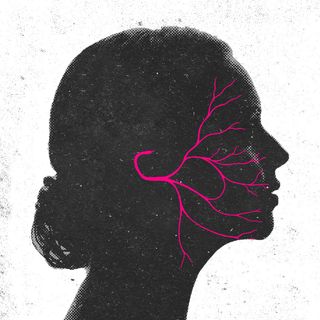Sleeping next to one’s partner might entail endless tugs-of-war for the shared blanket in the middle of the night — besides learning how to fall asleep despite their snores and their tossing-and-turning, of course. But the effect of the practice may not be as disruptive as it appears prima facie to our conscious mind. According to a new study, falling asleep next to the one we love can also have a range of benefits for both our physical and emotional wellbeing.
Published in Oxford Academic’s Sleep and presented at the annual meeting of the Associated Professional Sleep Societies, the study found that compared to sleeping alone, sharing a bed with one’s romantic partner can reduce anxiety and depression. In addition, it was also found to help people not only fall asleep faster, but also sleep longer. Naturally, then, People also reported feeling less fatigued after a night of sleeping next to their partner.
According to the researchers, the practice of going to sleep next to one’s partner not only improved people’s sleep quality, but also reduced the severity of insomnia some may experience, alongside their risk of sleep apnea.
Prior research also suggests a plethora of benefits attributable to sharing a bed with the person one loves. “Sleeping with your partner also stimulates the release of a cocktail of chemicals that can help you get a great night’s sleep,” Tim Gray, a biohacker and psychology specialist, had said. According to Gray, the chemicals — hormones, really — that form the cocktail include oxytocin (the “love” hormone), and serotonin (the “feel-good” hormone), among others. Reportedly, a high level of oxytocin can also reduce people’s blood pressure.
Related on The Swaddle:
White Noise Doesn’t Necessarily Aid a Good Night’s Sleep, Says Study
Evidently, if one’s partner’s snoring habits or their restlessness during sleep aren’t too bothersome, it might be a good idea to sync one’s sleep cycles with them. “The sound of snoring, the tugging of blankets, and the bumping of limbs are all registering on some level, and yet [are] far from interrupting your sleep,” as an article on Science Alert explains. Instead, the feeling of lying next to someone we’re intimate and familiar with, might also induce a sense of security — enabling us to sleep better.
What makes this study valuable is that it proposes a rather simple solution to ensure better sleep. Almost like the adage, “An apple a day keeps the doctor away.” But just like consuming an apple every day might not be an option for everybody — be it due to an allergy, the unaffordability of apples, or even their unavailability — falling asleep next to one’s romantic partner may not be for everyone either. Perhaps, they’re single, Or, maybe, they’re aromantic, live in different cities, have an abusive partner they don’t feel safe around, or sleep by themselves due to incompatibilities with their partner or as a matter of preference.
“If your partner hinders you to fall asleep or disturbs your sleep, and you are much more relaxed if you sleep alone, that is probably the best sleeping arrangement to do,” Henning Johannes Drews from the department of mental health at the Norwegian University of Science and Technology, had advised in 2020. Given that a 2009 study had found women who slept next to snoring partners experienced poor, fragmented sleep, sharing a bed with the people we love is certainly not advisable for everyone.
Poor sleep, as Madeline Sprajcer, a lecturer in psychology at Australia’s CQUniversity, wrote in The Conversation, “can lead to a range of health problems – such as poor heart health, stomach problems, poor mental health, and a greater risk of accident or injury.” As such, while sharing a bed with the person they love may not be a solution that works for everyone, it might certainly benefit some rather greatly.
And apparently, it can also strengthen the bond one shares with their partner. So, as Sprajcer notes, “Getting along well with your partner might lead to a better night of sleep — and vice versa!”
A previous version of this article had incorrectly identified the lead author of the recent study as a psychiatrist.




